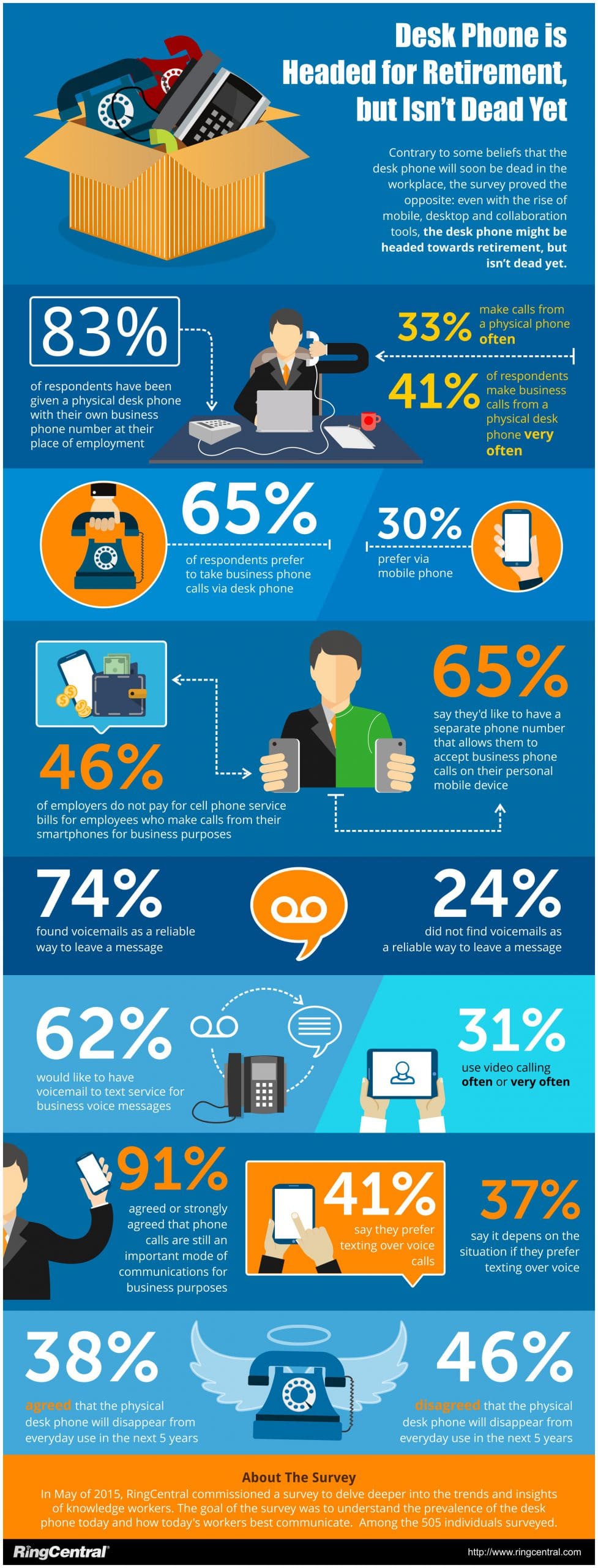
In May of 2015, RingCentral commissioned a survey to delve deeper into the trends and insights of knowledge workers. The goal of the survey was to understand the prevalence of the desk phone today and how today’s workers best communicate. Among the 505 individuals surveyed, 30% prefer to take calls from their mobile phone, 65% from their desk phone and only 5% via a laptop or desktop software. Contrary to some beliefs that the desk phone will soon be dead in the workplace, the survey proved the opposite: even with the rise of mobile, desktop and collaboration tools, the desk phone might be headed towards retirement, but isn’t dead yet.
Participants of the survey were asked if they agree or disagree that business calls from a desk phone are in decline. Even if workers still use their desk phones, over half said they believe the desk phone is in decline. In fact, our survey showed employees’ preference for working, and other technologies are rising up and threatening the desk phone’s early retirement
- Despite the rise of the mobile workforce and BYOD (bring your own device) trends, 46% of workers cite that employers don’t pay for their cell phone.
- 65% say they’d like to have a separate phone number that allows them to accept business phone calls on their personal mobile device.
- 31% use video calls often or very often.
- 26% of people do not find voicemails a reliable way to leave messages because they don’t check voicemails or only check occasionally. Among those surveyed 62% of people would like to have a voicemail service that translates voice messages to text.
So what’s keeping businesses from trading in legacy desk phones for sleeker alternatives? Clearly employees are relying more frequently on alternative methods of communication from video calling to using their mobile phones, and relying less on functions associated with traditional PBX phone systems like voicemails.
We’re still years away from killing the desk phone, but it does seem to be heading for retirement. We hear from our customers that the desk phone hasn’t kept up with the way people work today and employees don’t want to feel tethered to a desk. At the same time, mobile phone and collaboration technology is rapidly improving. Workers find it more convenient to take a call from their mobile phone and they now have technology that makes this feasible.
While the desk phone isn’t dead, employees are pushing for alternative technologies. It’s time for employers to equip employees with the technology they prefer to get their work done—and soon enough the desk phone will be a thing of the past.
Check out the complete infographic below:
Originally published Sep 29, 2015, updated Jun 17, 2024



